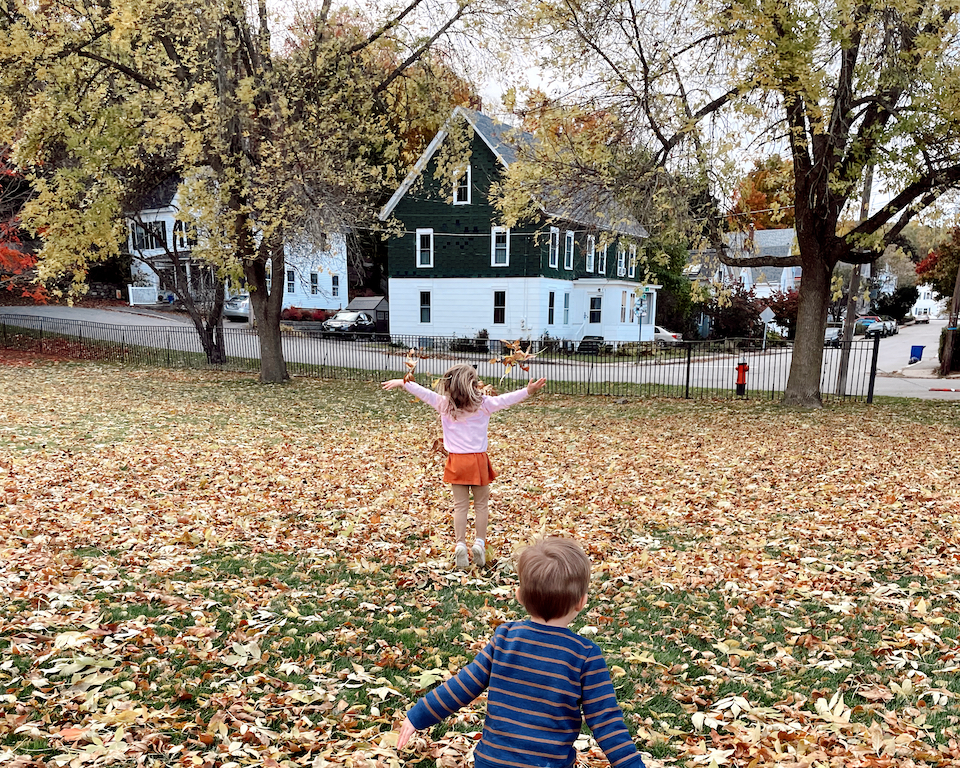“Mom, I made a big mess!” my daughter exclaimed with a mixture of pride and excitement, eyebrows arched, eyes wide. Shuddering in anticipation of what I was about to see, I entered the sunroom. Water beads freckled the floor from wall to wall. Tucked inside the wicker couch cushions and hidden inside shoes, their vibrant colors gleamed from every corner of the room. It had been a tough morning, and this mess pushed me over the edge into the bleak chasm of frustration, where I fall into acting like the mother I do not want to be.
When I was younger, I was a bit obsessive about keeping my room clean. Part of the reason for this may have been the fact that I shared a room with four younger sisters. Four younger sisters who were certainly not invested in helping me keep our bedroom tidy and neat. So, I had to get creative. Because it was nearly impossible to motivate them to clean for the pure satisfaction of being able to see the bedroom floor, I invented games that inadvertently involved tidying up. Sometimes, we would imagine we were orphans under the mastery of a cruel mistress who would punish us severely if our room was messy. In overdramatized anxiety, we would rush about the room, picking up clothes and books, odds and ends, panting and moaning in distress. And if anyone’s enthusiasm lagged, I would yell, “She’s almost here, I can hear her footsteps in the hall!” When the room had reached a satisfactory level of cleanliness, I would step outside and become the orphanage mistress, entering with a snarl as I pretended to hunt for dust and crumbs while my sisters tried to stifle their giggles.
My favorite game was probably “obstacle course” where I would distribute all the items on the floor into several even lines. Each sister, myself included, would choose a line and after the count of three, we would race to see who could clean up their line of items first. It was a marriage of mess and motivation, an innovative way to make the job a game, to steal a phrase from Mary Poppins. But it wasn’t as easy as snapping your fingers. While my games initially, or after a long time of disuse, were often successful, more often than not, the mess remained.
Now, my life as a mother has thrown me into a role that involves cleaning messes that reach far beyond my bedroom doors. There is always a mess to be cleaned, some more urgent than others. Dirty dishes, wrinkled laundry, cracker crumbs, spilled milk, stinky diapers; the endless messes are ever repeating themselves. And perhaps this is what frustrates me the most, knowing that I will have to clean up the same mess again and again. Yet this is the plight of the human condition, our need for constant and consistent cleaning up, both in our homes and within ourselves.
Cleaning messes, repeating stories, picking up the toys over and over again are persistent, gentle reminders that we will never be fully complete here on earth. The struggle is constant. But if there is anything motherhood has taught me, it’s that we will always have the capacity to keep going, to endure. My children’s need for me to clean their messes, wipe their boogers and kiss their boo boos tells me again and again: this is not the finish line, but the training grounds before the final destination.
In a Coffee and Crumbs podcast I recently listened to, the guest on the show shared some advice in response to the question, “What is one thing we (mothers) should all let go of?” Her response encouraged mothers to give up the idea of an arrival point. The idea of arriving at a clean house, children who always say please and thank you, a husband who remembers everything you say, a kitchen sink that is never full with dirty dishes. I think we all seek an arrival point of life, of wanting to get to a place where the daily responsibilities of life just don’t feel so hard and we don’t have to keep repeating the same lessons over and over. But that’s not the point of this time on earth. Here we live in “the being in between” where we will never be fully complete. We can always make progress, always move forward, but oftentimes, we will find ourselves cleaning up the same messes again and again. And that’s ok.
Lately, I have been really wrestling with this reality, fighting against it as I try to pick up every forgotten toy, fold each piece of laundry and clean each dish. As any mother of young children knows, we hold so many uncleaned messes at once, the ones we can see on our kitchen floors and the ones causing turmoil within our family. It’s simply impossible to live without some mess. The middle schooler within me trying every strategy possible to keep her room clean wants to deny this, fight against it and maintain control over every mess. But I know this only serves to distract me from the true purpose of my vocation. And when I look to my children and allow myself to be present to the reality that they are treasures to hold and not messes to clean, therein lies the solution.
Children wake you up during the deepest of sleep cycles, they throw their food on the ground even if they aren’t done, they wipe their slimey boogers on your sleeve and stain your clothes with a mixture of bodily fluids. Children are messy. But they also show us a glimpse of how we look before God: dependent, broken, in need of constant redeeming. And they teach us how we ought to try to respond like God would, with a willingness to endure the mess, clean it up, and keep loving them anyway, just as He does for us.
A few evenings ago, in the middle of the pre dinner rush of cutting food and filling waters, we called the kids to come to the kitchen for dinner. “But I need to clean the living room!” my daughter yelled. Looking at each other in disbelief, my husband and I peered in to see our daughter cleaning up the scattered toys we had been planning on attending to later. Completely unprompted, she had decided to help us clean the mess. And while she still makes more messes than she cleans, this little gesture felt like a gentle reminder for my mother’s heart that while the mess will often remain, we are not alone in the cleaning.




